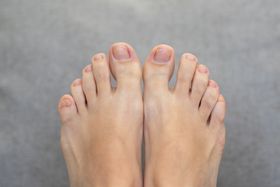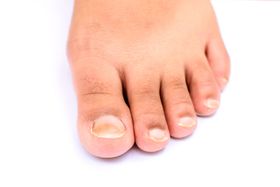Reduce Hair Loss With These 3 Trace Minerals
Published July 30, 2022.

The body needs various kinds of nutrients to function effectively. Micronutrients such as vitamins and minerals are essential to maintain overall health and well-being. Though, required in tiny quantities, the body depends on trace minerals for proper functioning. A deficiency of trace minerals can be detrimental to health and give rise to many conditions, including hair loss.
Here’s what you need to know about which mineral deficiencies can cause hair loss and the best trace minerals that can help deal with it.
What Are Trace Minerals?
Trace minerals are micro minerals required in small quantities (less than 100 mg per day) for making enzymes, hormones, and supporting cell functions. Though there are many trace minerals, the most essential ones required for a healthy body include (1)(2):
- Iron
- Zinc
- Selenium
- Copper
- Chromium
- Manganese
- Fluoride
- Iodine
- Molybdenum
Trace minerals provide various benefits and are very important to maintaining hair health too. Minerals play a role in promoting hair follicle development and cell turnover. They also prevent premature greying, prevent brittleness, and promote keratin production to strengthen hair naturally. Vitamin and mineral deficiencies can increase the risk of alopecia areata (a severe hair loss condition) and easily contribute to hair thinning and loss.
Mineral Deficiencies That Cause Hair Loss
Several minerals are required for the healthy growth and maintenance of hair. Studies show that iron, zinc, and selenium are crucial for hair, and a deficiency of any of them can induce hair loss in individuals.
Consumption of an unhealthy diet that is inadequate in a variety of nutrients, stress, and prescribed or over-the-counter (OTC) medicines taken for medical conditions, can contribute to mineral deficiencies that in turn increase the risk of hair loss.
But the opposite is true too. Excess intake of any of these trace elements, mostly through supplements, can prove toxic and result in rapid hair loss.
3 Best Trace Minerals for Hair Loss—and Some Others
Hair loss owing to nutritional deficiencies, specifically trace minerals, is easy to reverse. A practitioner can assess deficiencies and may recommend using supplements with a trace mineral blend to reduce hair loss and even help in the regrowth of hair. Some of the trace minerals that are essential to prevent hair loss and support healthy hair growth in individuals include:
1. Iron
The role of iron in hair loss is still being debated among experts.
Iron is an important mineral that aids in transporting oxygen to the scalp and all other cells in the body, including the hair. Iron acts as a cofactor for the enzyme ribonucleotide reductase in DNA synthesis and hair cell growth. This process is deemed to be affected when iron levels are low. Studies show that low levels of iron are usually present more in women and can contribute to their hair loss. In men, it can increase the risk of alopecia areata (3).
Iron deficiency as the cause of hair loss needs to be determined on a case-to-case basis. This needs to be diagnosed and treated by experienced practitioners, (4)
2. Zinc
Zinc is a very essential mineral that partakes in DNA replication and enables hair follicle division. It is necessary for many enzymatic reactions, promotes protein synthesis, and supports healthy hair growth and hair cell repair.
The deficiency of zinc interferes with the normal hair growth cycle and results in alopecia or hair loss. Correction of zinc deficiency under supervised zinc supplementation has been known to potentially reverse hair loss effectively (5)(6).
3. Selenium
Selenium, an essential trace mineral, may protect hair from oxidative damage, stress, and aid in hair follicle morphogenesis. Its antioxidant mechanisms take place via its interaction with the enzyme glutathione and help prevent hair loss.
Lack of selenium due to nutritional deficiency is also linked to low pigmentation in hair. Research indicates that adequate supplementation enhances selenium levels to help increase pigmentation of hair and provide relief from alopecia (7)(8).
Other minerals
Apart from iron, zinc, and selenium, other trace minerals such as copper, magnesium, silicon, and calcium also have physiological roles to play in strengthening hair and preventing hair loss, especially in women (9).
Conclusion
Mineral deficiencies can trigger hair loss. While many people try choosing between using biotin or collagen for hair health, not much thought is given to the trace minerals. Even though trace minerals are required only in tiny amounts, they are extremely important to sustain normal functioning and are vital to hair health.
Understanding the role of minerals, identifying their deficiency as the cause, and increasing intakes through foods or via practitioner-recommended supplements can prevent mineral deficiencies, protect hair against damage, and help reverse hair loss.







